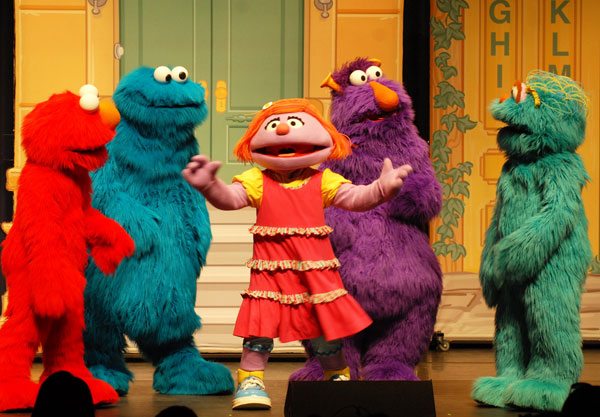
October 6, 2017; ABC News
Can the minds behind Sesame Street sweep the clouds away and create more sunny days for children across America? Fresh off being named a finalist for the MacArthur Foundation’s “100&Change” competition, the nonprofit Sesame Workshop has launched another innovative initiative to “mitigate the harmful effects of adverse childhood experiences,” part of Sesame Street in Communities.
The new collection of resources for families could be part of the solution for a dire situation: A new analysis of a 2016 survey of children’s health reported that nearly half of American children have experienced an adverse childhood experience (ACE), such as domestic violence or a natural disaster.
“The analysis further reveals that more than 20 percent of American children have had at least two ACEs—children who have had multiple ACEs are at a significantly higher risk for issues affecting their development, learning and health, with cumulative impacts as they age into youth and adulthood,” Sesame Workshop noted in a press release. “Traumatic experiences and resulting toxic stress can disrupt a child’s brain development and increase the risk of both short-term and long-term physical, social, and emotional issues.”
The Sesame Street Muppets will model coping strategies for kids and caregivers with bilingual videos, books, and digital activities, from Big Bird learning how to make his nest a safe space to a breathing technique taught by the Count. Sesame Street in Communities is currently being piloted in three cities and through PBS stations nationwide.
“Over the next five years, Sesame Street in Communities aims to reach 4.5 million children under age 6 and their families; connect with more than 11,000 direct service providers; develop 200 national and local partnerships; and expand to at least 35 additional communities across the country,” the release said.
Sign up for our free newsletters
Subscribe to NPQ's newsletters to have our top stories delivered directly to your inbox.
By signing up, you agree to our privacy policy and terms of use, and to receive messages from NPQ and our partners.
Long a childhood favorite, Sesame Street has since expanded beyond television and Sesame Workshop even announced a partnership and $10 million fund with a venture capital firm last year called Sesame Ventures.
Sesame Workshop also received widespread acclaim last year for partnering with the International Rescue Committee (IRC) to reach children living in refugee camps and creating two special new characters—a Muppet named Zari with a headscarf, appearing in the Afghan version of the show, and one named Julie who has an autism disorder.
Just last month, the partnership with the IRC to educate children displaced by conflict was recognized by the MacArthur Foundation as one of the finalists for a remarkable $100 million grant to create “real and measurable progress in solving a critical problem of our time.”
The International Rescue Committee and Sesame Workshop will help heal the scars of war and cultivate the full potential of an entire generation. Sesame Seeds, delivered through mass media and direct services, will use proven techniques to measurably transform children’s learning and social-emotional skills and mitigate the effects of toxic stress. Through extensive research, we have developed a solution that is intense enough to be life-changing but cost-effective enough to be scalable…
Sesame Seeds will mitigate some of war’s most harmful consequences and empower today’s victims to be tomorrow’s nation builders.
It’s clear that Sesame Workshop is at the forefront of helping children here and abroad navigate today’s challenging world and, hopefully, thrive. After all, as Sesame Workshop noted, “Children are remarkably resilient, and the effects of traumatic experiences can be lessened if they receive comfort and support.”—Anna Berry













